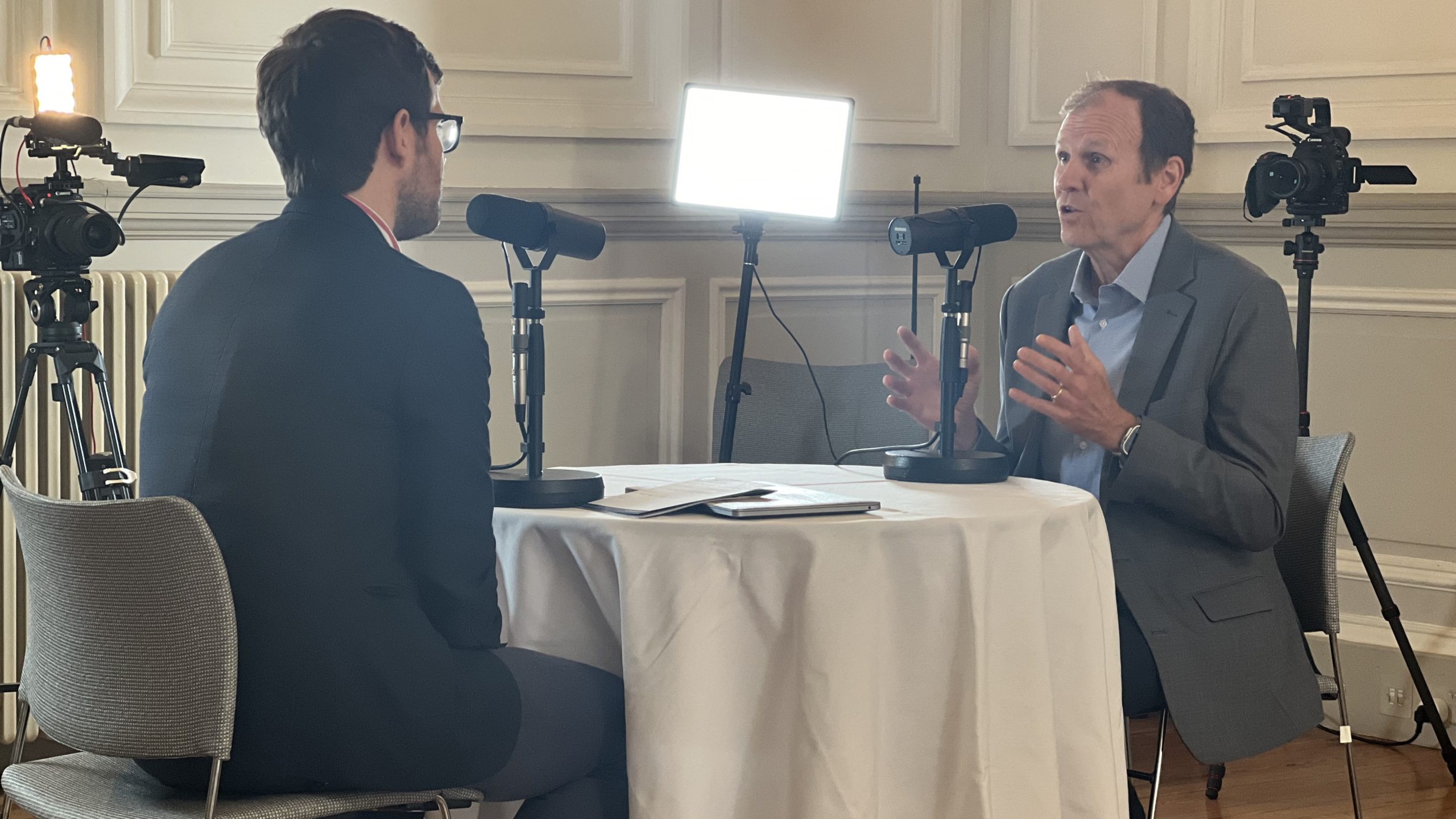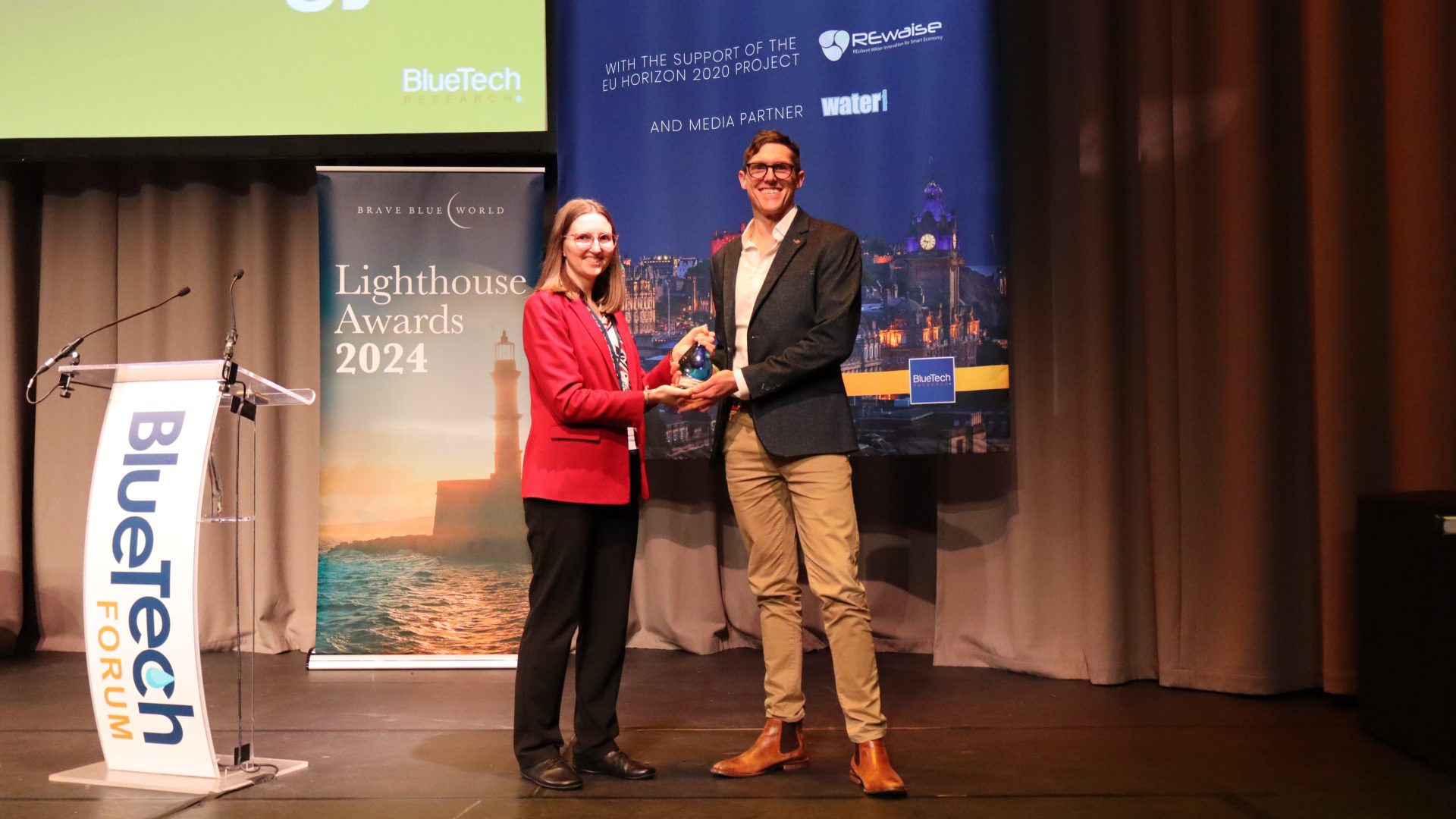An applied research project in Scotland involving the use of earth observation science (EOS) in multiple water applications was just one of many highlights of BlueTech Forum 2024 for Paul O’Callaghan, chief executive of BlueTech Research.
The roundtable delivered by Professor Andrew Tyler, Scotland Hydro Nation Chair at the University of Stirling, and was one of 16 where delegates could tackle real-world challenges in creative ways. It was part of a rich two-day programme identifying ways water innovation is being put into action globally.
“With the EOS project, there’s potential for making much smarter decisions around what we do to invest in a great range of water solutions at catchment scale,” said O’Callaghan. “It will make a much stronger economic case if it can be demonstrated with evidence and data how deploying a solution for nutrient removal and reduced eutrophication will work, for example.
“This can now be monitored from satellites, based on parameters like the temperature or colour of surface waters. It will be possible to be predictive, because if we know what happens in certain circumstances, we can have advanced warning and alert utilities to issues they may have at the water or wastewater treatment plant or CSO [combined sewer overflow].”
BlueTech Research provides water technology market intelligence to investors, water utilities and municipalities, industrial end-users and technology companies, to accelerate technology commercialisation. This community of innovators is brought together annually at BlueTech Forum, which took place in Edinburgh from 2-4 June 2024, and other events throughout the water sector calendar.
Water opportunities
Eight areas for opportunity in water, identified by BlueTech, and explored by speakers and delegates, included unlocking SDG 6 – the UN sustainable development goal for water and sanitation. According to O’Callaghan, creating new business models that bridge unmet need for water in low-income countries represents a UN$114 billion opportunity, according to the World Bank.
The theme was picked up in a keynote address from Gary White, chief executive of non-profit Water.org, which he founded with actor Matt Damon. Through its WaterEquity initiative, the organisation is building connections into the capital markets for micro-financing initiatives addressing the unmet needs of the world’s poorest people. Nearly $500 million has been raised at a modest return of 1%, through global corporations like Microsoft, Starbucks, Ecolab and Xylem.

Other areas of opportunity include solutions for emerging contaminants, non-revenue water, water reuse, sludge & biosolids, and flood management. On the latter, O’Callaghan said “managing too much water” was the biggest issue facing UK utilities, where the public is becoming increasingly impatient, and the regulator is putting on pressure. It is also a case where the coping costs are high, he said.
“You may not see the market, but you see the coping costs. It’s been estimated that the cost of flooding in the United States is $400 billion.
“There’s clearly an issue of abundance and scarcity. In terms of water, there’s an abundance of it, there’s no limit to the value we can create.”
Sponge planet
A keynote from the pioneer of China’s sponge city movement, landscape architect Professor Kongjian Yu of the University of Peking, revealed how urban landscapes can be transformed to retain water and create stunning urban landscapes at scale.
“The key to holistic solutions is green and blue together as a kind of sponge,” he said. “Not just as a city, but as a planet – a sponge planet – solving all kinds of problems – carbon biodiversity, meanwhile cooling off the planet, and recharging the aquifer, and creating beautiful habitats, even for people.”
On a smaller scale, delegates experienced new approaches to water management first-hand during tours of Edinburgh’s stunning Royal Botanic Garden led by Scottish Water’s team. The public utility is partnering the Garden in exploring different approaches to managing urban stormwater.
Rain gardens and specially designed pools, planters and beds are already changing the landscape of this formally designed green space, creating new habitats for wildlife, and keeping water away from walkways during storms.
Winning innovations
Wastewater treatment was a key area of focus for most of the companies represented in the innovation showcase, which included technologies for deployment in complex industrial processes like refineries and textiles.
Winner of the award for Best Go-To-Market Strategy was UK start-up WASE, whose innovative approach to treating organics in wastewater from the food and beverage industry won over the delegates. The company’s electro-methanogenic reactor (EMR) not only produces 30% more biogas than traditional methods, but also boasts a smaller footprint.
The Most Disruptive Technology award went to Seattle-based Membrion, whose ceramic ion exchange membranes impressed judges with their ability to recover up to 98% of water from the harshest wastewaters. This opens-up new applications for electrodialysis (ED) and ED reversal processes.
Amplifying stories
The theme of storytelling underpinned the entire programme, which opened with the UK premiere of Our Blue World, the latest documentary film from the Brave Blue World Foundation. Personal water origin stories of professionals taking part in BlueTech Forum were also shared throughout.
Aimee’ Killeen, president-elect of the US Water Environment Federation, one of the movie’s partners said:
“We need to tell our story better as an industry, so part of our strategic plan is that we need to amplify the stories of water – and again that’s on each of us. We’re very good at talking to each other in this sector, but we also bear the responsibility oas water workers to tell our stories to our families and our friends and get that message out there.”



